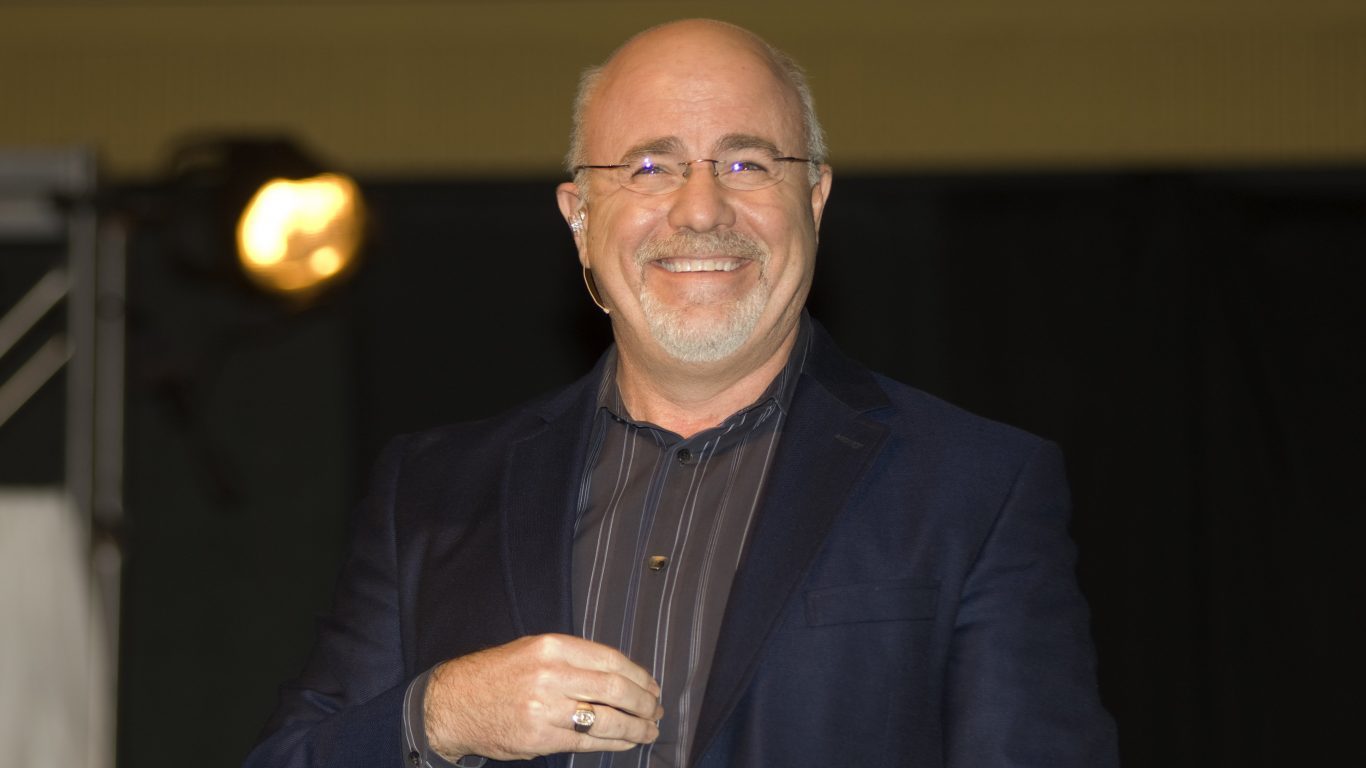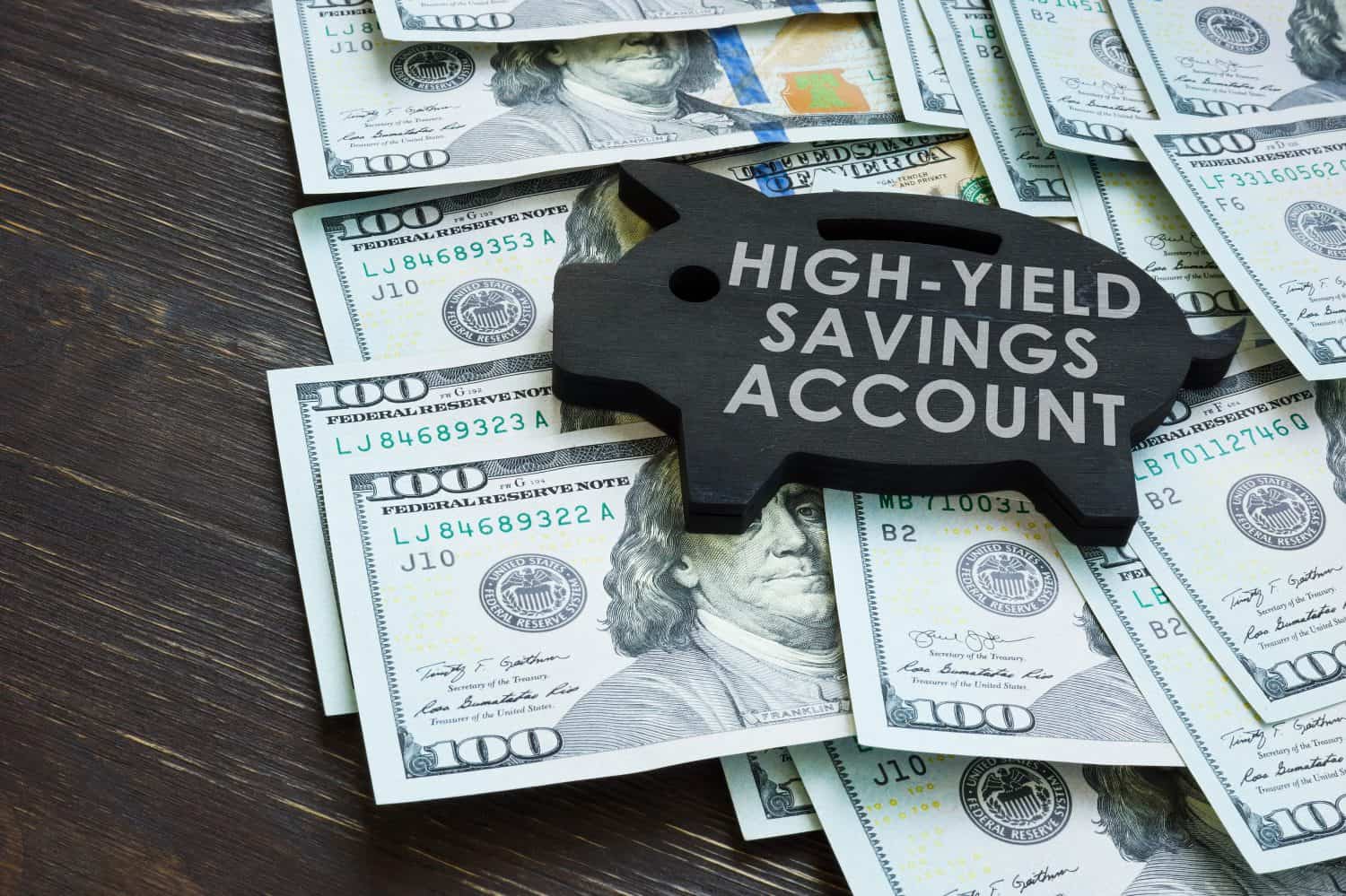Personal Finance
Dave Ramsey Understands That Millionaires Make Their Money Work for Them. Here's One Way.

Published:

Personal finance guru Dave Ramsey famously became a millionaire before he turned 30 by investing in real estate, taking on large debts in the process. He then lost it all when his banker called in a loan, and ruined him. But Ramsey pulled himself out of debt, built a new business empire based in media, and today is reportedly worth more than $200 million.
I tell you all this for two reasons: First, because everyone loves a good rags-to-riches-to-rags… to riches again story. And second, because I think it’s safe to say that if anyone knows how to become a millionaire, it’s probably a guy like Ramsey, who has done it himself not once, but twice.
Dave Ramsey urges his listeners to live below their means to accumulate spare cash.
Once saved, cash can be invested in real estate, stocks, bonds, or even just a bank account to grow over time.
Opening or adding to a simple bank account is the easiest way to get started making your money work for you.
Earn up to 3.8% on your money today (and get a cash bonus). Click here to see how. (Sponsored)
And what does Ramsey have to say about how millionaires make their money, and what they do with it once they’ve got it? In a nutshell, he says that millionaires make their money work for them. But what does this mean, exactly? How do you “make your money work for you”?
Well the first step is to get some, money to work with. And for that you must “live below your means,” which simply means spending less money than you earn, so that there’s some money left over to (say it with me now) “work for you.” Once that’s accomplished, the money must be placed somewhere that the magic of compound interest can help it to grow over time.
That might be in real estate, which can generate income (from apartment rent, for example), and tends to appreciate in value about 3% to 5% annually over time (but incurs property taxes and maintenance expense). It might be in the stock market, which tends to grow about 10% annually over time (but is subject to occasional stock market crashes, as well as sometimes long periods of flat or modestly negative growth). It might be in the bond market, which has its own quirks and can take some time to understand (different bonds pay different interest rates, for example, and when interest rates go up, the value of any bonds you already own go down).
So you see, while there are multiple ways to make money “work for you,” each comes with caveats.
The simplest way, of course, to put the power of compound interest to work for you is by opening a bank account. After all, when most of us think of “interest,” we’re probably thinking of the interest that a bank pays you on your checking or savings account.

That being said, not all bank accounts are created equal. According to Bankrate.com, the average bank savings account in the U.S. right now pays about 0.6% annual interest. That’s tiny. Even left untouched and allowed to compound for 10 years straight, a bank account paying 0.6% will grow to only $106.17 over 10 years. (And some banks pay even less).
The good news is that there’s no reason to settle for “average,” much less below average. A few minutes’ research on the web are all it takes to discover multiple brand-name banks paying 3.8% or more on high-yield savings accounts. And despite what you might fear, these are perfectly ordinary bank accounts, FDIC-insured, with big banking brands behind them.
Oh, and an interest rate of 4%, saved over 10 years, will turn $100 into more than $145.
Granted, banks usually can only pay above-average rates when they don’t have as many (or any) physical branches to maintain, as do retail banking chains like Chase or Bank of America. But when’s the last time you set foot within an actual bank branch? And even if you do need to visit a branch from time to time, there’s nothing stopping you from maintaining two bank accounts. You might bank with Chase for convenience, for example, and keep a small sum there earning that bank’s 0.01% interest rate, while growing most of your cash faster at a SoFi high yield savings account paying 3.8%.
Even if you’re not a millionaire (yet), there’s no reason not to grow your money as fast as possible, as safely as possible, while you wait.
The last few years made people forget how much banks and CD’s can pay. Meanwhile, interest rates have spiked and many can afford to pay you much more, but most are keeping yields low and hoping you won’t notice.
But there is good news. To win qualified customers, some accounts are paying almost 10x the national average! That’s an incredible way to keep your money safe and earn more at the same time. Our top pick for high yield savings accounts includes other benefits as well. You can earn up to 3.80% with a Checking & Savings Account today Sign up and get up to $300 with direct deposit. No account fees. FDIC Insured.
Click here to see how much more you could be earning on your savings today. It takes just a few minutes to open an account to make your money work for you.
Thank you for reading! Have some feedback for us?
Contact the 24/7 Wall St. editorial team.